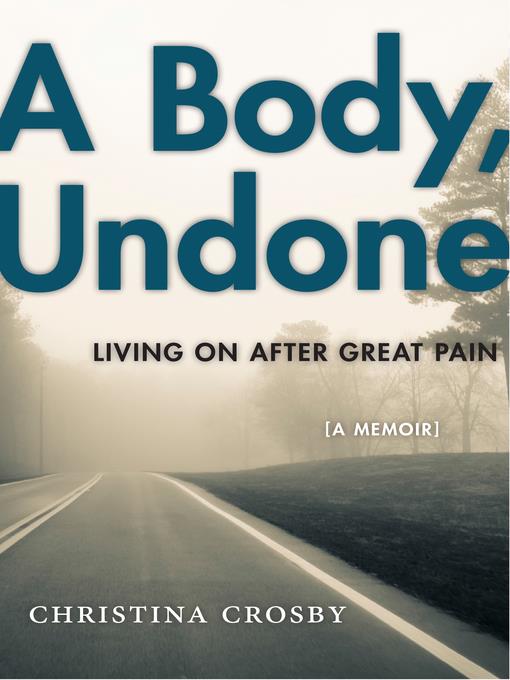
A Body, Undone
Living On After Great Pain
زندگی پس از درد بزرگ
کتاب های مرتبط
- اطلاعات
- نقد و بررسی
- دیدگاه کاربران
نقد و بررسی

December 15, 2015
One moment, she is on her bicycle; the next, she is on the ground, her life forever transformed by an accident that leaves her a quadriplegic. Crosby, who still teaches part-time at Wesleyan University (English and Feminist, Gender, and Sexuality Studies) and has published scholarly works (The Ends of History: Victorians and "The Woman Question," 1991), offers a painfully, even courageously candid memoir about her accident in 2003 and its aftermath. She says she has no memory of the moment when a branch caught in her front wheel and sent her hurtling to the ground, a collision that shattered her jaw and broke vertebrae, but she tells about her long period of rehab and the devotion of friends and, especially, of her lover, Janet. She occasionally returns to her pre-accident life to tell about her family--with special attention to her brother, Jeff, who suffered profoundly from multiple sclerosis and who died some years after her accident. The author notes the cruel unlikelihood that two siblings would become quadriplegic. Along the way, we hear about her growing awareness of her sexuality, of her great fondness for sex, her issues with alcohol, and of the active physical and intellectual life that she adored. She writes in wrenching detail about her constant pain, her bowels, her sex life, and her determination to craft a new way to live. She writes affectingly about the home-care professionals who have helped her, noting how much we all depend on them and how little we pay them. She uses poems by Emily Dickinson, William Blake, and a former student to illuminate her situation; she discusses the importance to her of George Eliot. Occasionally, she slips into academic-speak (quoting from various authorities), but it's never for long and never enough to slow the emotional momentum she so carefully creates. A potent memoir that rips open a most human heart.
COPYRIGHT(2015) Kirkus Reviews, ALL RIGHTS RESERVED.

























دیدگاه کاربران